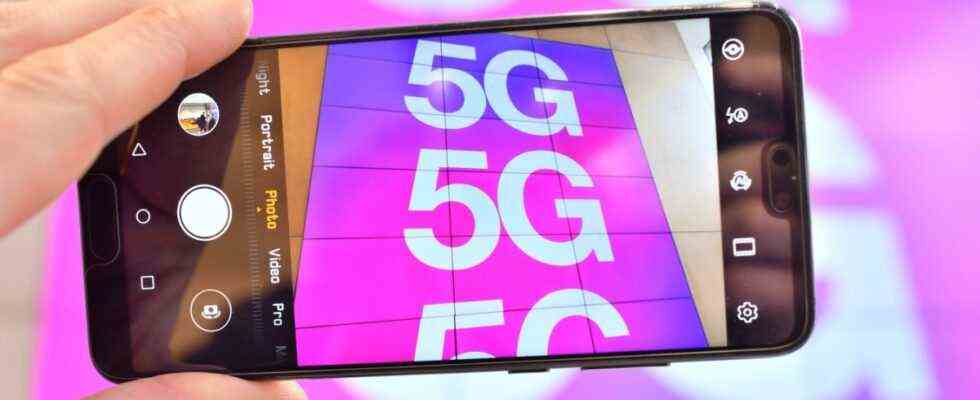Advertising and reality do not always go together, this experience is part of growing up. The question is how far the game with illusions can be pushed. If you overdo it, you run the risk of disappointing customers. With 5G – don’t worry, this is not a new corona rule, but a cellular standard – the industry has exceeded this point, at least it is close. According to a survey by the consulting firm Deloitte, a good 85 percent of Germans do not want to actively try to switch to the new network – despite all the advertising drums.
Why should they? What was left out in advertising for private customers for good reason: 5G is the first mobile network that does not primarily benefit people, but machines that can use it to communicate better with one another. At the moment, no one has to worry about being left behind technologically if he or she does not use 5G. For what smartphone users usually do, 5G is simply not necessary. Social networks, music and video streaming, chatting and much more – all of this works just as well with the previous 4G technology.
Speaking of 4G: In most cases, what the providers are selling as 5G is only a hybrid of both technologies anyway. The connection is established via 4G, only the pure data transmission then runs over the new network. Incidentally, this does not necessarily happen so that customers can be served faster. 5G is more efficient than 4G, the providers simply save costs because it uses significantly less energy per transmitted data unit than its predecessor 4G.
Vodafone already offers real 5G at some locations, i.e. without the piggyback solution via 4G. 5G “Standalone” is the technical term for it. But in order to be able to use this, you also need end devices that can handle it. So far, this only applies to a handful of smartphones from Samsung and from the Chinese manufacturer Oppo, which is still little known in this country. In any case, the latest iPhone, version 13, is not yet able to do it, a software update is being worked on, delivery date unknown. And even if you have such a device and a 5G mast within reach – the benefits are barely discernible.
The industry has once again managed to introduce what is actually a promising technology in such a mess that most consumers don’t quite know what to do with it. There are enough examples of how it shouldn’t work: TV sets, for example, have such a large number of terms and abbreviations such as HD, UHD, 4K, HDR, Oled, HDMI and so on that a normal consumer can no longer see through. After all, most of them want a TV set. But with 5G, the added value has remained hidden from them.
There is a simple reason for this: there is still no added value for ordinary users. It will take a few years. By then, the network really has to be fairly large and completely converted to the new technology. In addition, there must then also be a significant number of compatible end devices.
From the point of view of the industry, their tactic is understandable to advertise 5G to the masses now. On the one hand, many have wrongly linked it with the hope of getting out of the misery with poor cell phone networks, especially in rural areas. 5G, that sounded like the future, but in reality it’s only going slowly. Second, the expansion costs a lot of money, so the operators have to generate revenue.
But one shouldn’t forget about all of this: 5G is beginning to gain a foothold in industry as a blazingly fast network that reacts almost in real time, and it can also be used very sensibly there. 5G is therefore absolutely important for the technological development of the country, also because it also brings some other important innovations, such as the possibility of integrating a large number of sensors at the same time.
But there is a saying: You hardly ever get a second chance to forget a first impression. As far as 5G is concerned, this opportunity has been pretty much ruined for private customers. It will take some work for the industry to address this flaw.

